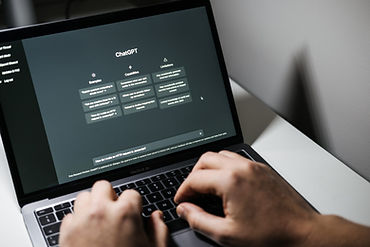By: Samuel Lin
ChatGPT was created by Open AI with $1 billion in funding from Microsoft and opened to the public for free in November 2022. ChatGPT gained popularity quickly, gathering 200 million active users in just 2 months. With ChatGPT’s wide range of capabilities, some are optimistic about the future of ChatGPT, while others are more wary of the dark powers of ChatGPT.
ChatGPT uses information from web sources such as Wikipedia, social media, blogs, and websites to craft its responses. In addition, it uses AI to make the responses more human-like. But unlike Siri, ChatGPT constructs sentences by predicting the most relevant word that should come after the previous word, so it constructs the sentence word by word.
“It is very fluent,” said Mark Riedl, a professor at Georgia Tech. “It is very articulate. It is very good at producing reasonable-sounding text.”
ChatGPT can imitate human responses to basic questions, write essays, write computer programs, and even impersonate celebrities. It can answer questions like “What should I do when I have stomach pain?” and respond to commands such as “Find the error in the python code.”
However, ChatGPT is not perfect. It can learn inaccurate information and bigoted stereotypes from the internet, and use them in the responses. On ChatGPT’s front page, there is a warning that reads “[ChatGPT] may occasionally generate incorrect information, [and] may occasionally produce harmful instructions or biased content.”
In addition, many people are worried about the misuse of ChatGPT. Many teachers have reported students using ChatGPT to write essays, complete tests and homework questions, and do other kinds of cheating. ChatGPT has also been used to write destructive malware.
“I’ve heard it’s pretty much an AI source that completely writes your essays plagiarism free… and you don’t gotta put any work into writing essays anymore,” said University of New Hampshire student Luke Stacey.
In order to prevent this, Open AI and other individuals have created a code to detect ChatGPT written articles. Open AI, the creator of ChatGPT, has developed a tool to find ChatGPT written articles. However, the tool sometimes does not detect ChatGPT articles. Princeton student Edward Tian created an app, GTPZero, to thwart ChatGTP cheating. Over 40,000 teachers are waiting to use Tian’s app.
ChatGPT, which Microsoft uses in its search engine Bing, is a threat to the Google search engine. So, Google has developed its own AI chatbot, called Bard. Nevertheless, Bard was nowhere near as competent as ChatGPT. In an embarrassing post on Twitter, Bard got a basic fact wrong about the James Webb Space Telescope.
Sources:
https://www.bbc.com/news/technology-64374283
https://www.businessinsider.com/everything-you-need-to-know-about-chat-gpt-2023-1
https://www.foxbusiness.com/media/princeton-student-develops-app-to-eliminate-chatgpt-cheating











